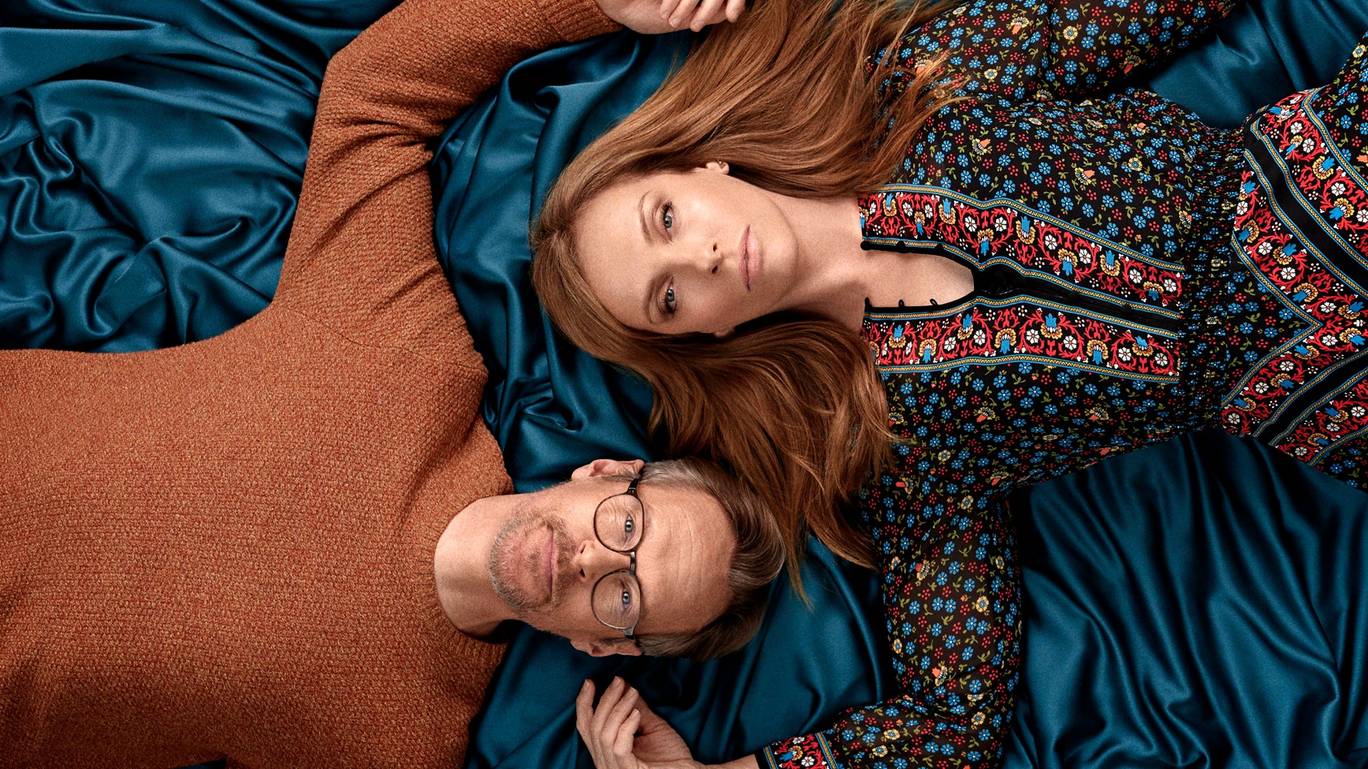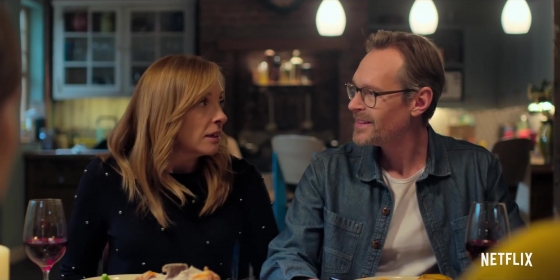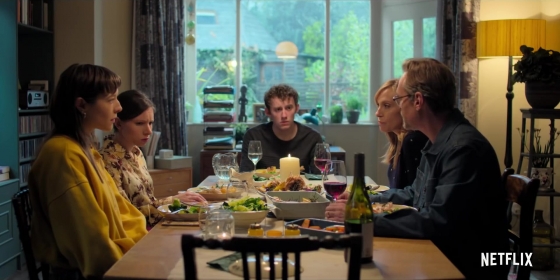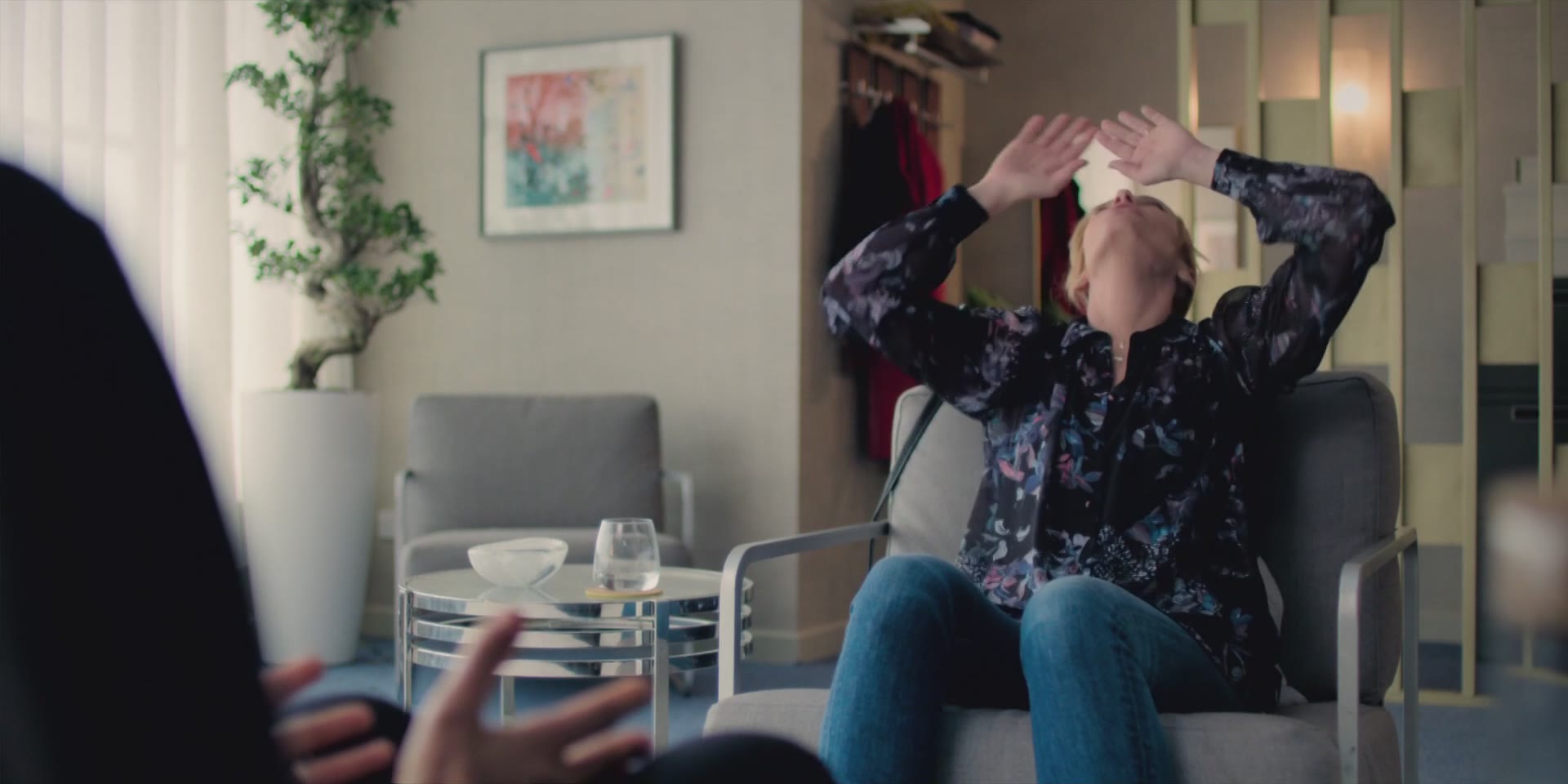
TITLE: Wanderlust
GENRE: Drama/comedy
STARRING: Toni Collette, Zawe Ashton, Steven Mackintosh, Sophie Okenedo, Paul Kaye
PRODUCTION COMPANY/DISTRIBUTION/COUNTRY: BBC One
YEAR: 2018
RATING: 🛏🛏🛏🛏🛏 (because five 🍆s seemed too obvious)
WHERE CAN I SEE IT? Netflix
Here’s the thing…the thing is…about Wanderlust is that it’s about sex…well, actually it’s about sexuality without being…I was going to say how it’s “holistic” in its approach to…actually being sexual…you see what I mean?
That’s a sample of about 20% of the dialogue in Wanderlust, so if tongue-tied people frustrate the hell outta you, you should give this show a miss. But that would be a huge mistake. Because what Wanderlust does well is complicate straight, hetero cis sex. And if you think, “Why bother?” because straight sex if everywhere, think of Wanderlust’s exploration of one couple’s attempt at an open relationship as a view into the quality, not the quantity of those types of relationships. Wanderlust looks at monogamy with more sophistication than any TV show in my recent memory by illustrating people grappling with a way of being that not many people are familiar with nor that many are willing to try. Much less willing to try it in small af English town.
The set-up: We learn, through opening conversation and flashbacks, that therapist Joy (Toni Collette) was struck by a car while riding her bike mere blocks from her home. She wasn’t reckless per se, but she was emotionally elsewhere when she’s hit. The impact breaks her pelvis, which puts her and her husband Alan’s (Steven Mackintosh) sex life on hold. When they’re finally able to get back to it and have with one another, they’re just not feeling it. And it’s not that one of them has gone “cold” and the other person starts to wander. They, in fact, clearly deeply one love another in a mentally sexual way, but not a physical way. Instead, they both experience attraction to other people — Alan to a teaching colleague and Joy to, first, someone in her waterobics class and, later, to a younger guy she happens upon after venturing into a raucous gig — and act on that to varying degrees.

Once these dalliances are out in the open, Joy, who is a therapist, suggests they try an open relationships. Of course, the one thing that Joy and Alan don’t count on — and that’s a running theme throughout the subplots — is that everyone involved is in danger of catching feelings. “Feelings are dangerous” is a central theme, but also confronting feelings is the recommended course of action.
Wanderlust is more about the inevitable fall-out of Joy and Alan’s open relationship. Not that open relationships are bound to fail, but that principled non-monogamy is such an oddly untested that hiccups, disruptions are bound to be par for the course. As Claire, Alan’s lover says, at a critical point in their emerging relationship, “I’m not sure how to do this at the expense of someone else.” The “this” is being in love with a married man who loves her and also still loves his wife and kids.
Joy and Alan have three mostly grown children so there are subplot diversions that I found to be good times for bathroom breaks or doing crosswords. Maybe it’s my time of life — closer to Alan and Joy and further from early 20s — but I found the parents’ attempts to do something different in a world that see monogamy as the only option more compelling than young love, both lesbian and straight.

Joy’s profession as a therapist heavily dictates how she conceives of how the couple’s open relationship will work, what’s allowed and what’s out of bounds. A key episode — one I thought I hated at first, is number five, which is essentially a two-hander between Joy and her therapist Angela (Sophie Okenedo) that digs deep into how Joy’s past experiences of death and loss are influencing her contemporary interpersonal relationships

I’d love to have Sophie Okenedo as my therapist. Toni Collette does a great job of conveying the frustration and general, , “WTF is this therapist talking about?” as Angela weaves back and forth through every single thing Joy has said during their therapy sessions. But then, suddenly, Angela gets the heart of the matter and Joy’s motivations. This was so much the case that I ended up nodding and muttering, “Um-hmm, Angela.”
All in all, Wanderlust was a great binge. I’m not going to think that much about my interior, intimate life while watching The Walking Dead, but watching Joy and Alan try to figure out who they are as couple and individuals will push you into some deep introspection. Just have your therapist on speed-dial.
A bonus from Wanderlust is Iain Cooke’s music supervision. More than three scrambles for Shazam and I’m looking for a soundtrack or compiled playlist. There were many on Spotify, but this is the best one I found. Enjoy!
And if you’re a Toni Collette fan or even just trust her to be in quality fair, this interview from the A24podcast, will deepen your appreciation for Collette as a human.

Leave a Reply